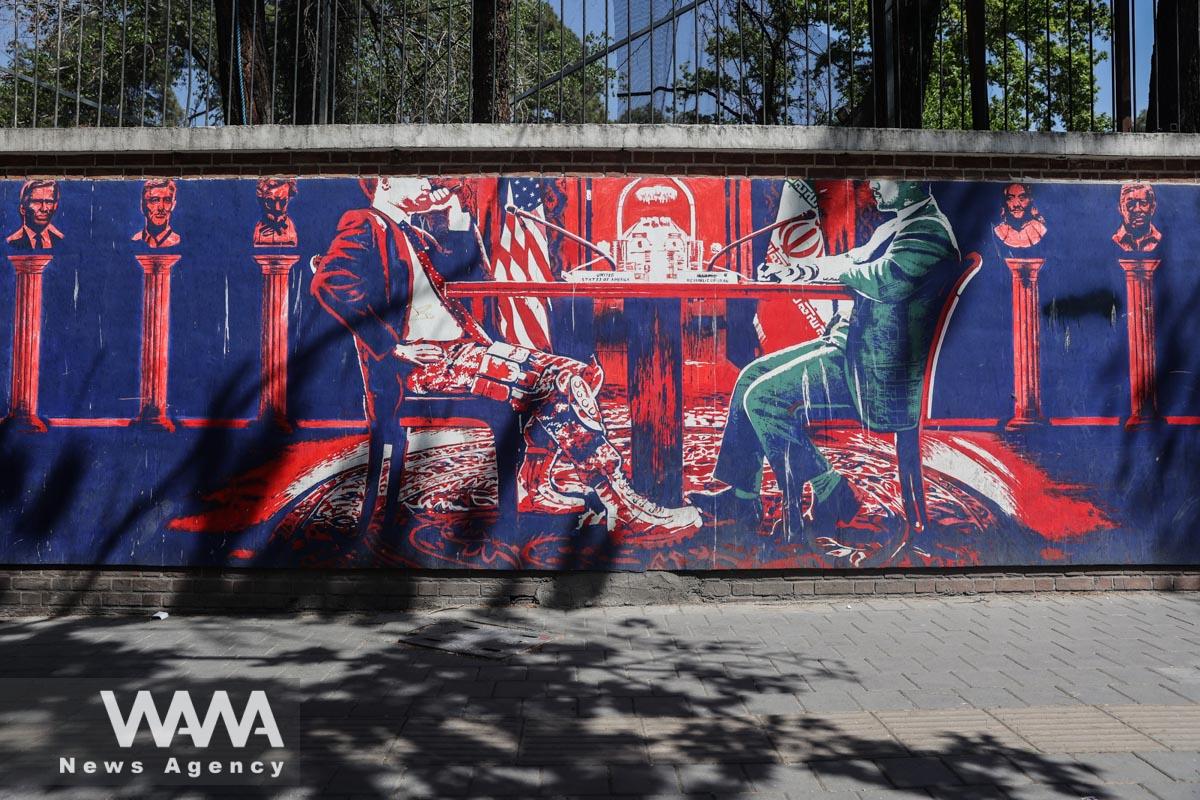Negotiation Deadlock: Enrichment or Surrender?
WANA (May 07) – What has recently unfolded in the diplomatic arena between Iran and the United States increasingly resembles a return to square one—a point where an old question resurfaces: Is negotiation with the U.S. even possible?
A Stalemate in Talks
The recent statement from Iran’s Foreign Ministry, delivered in a sharp and critical tone, along with a phone call between Abbas Araghchi and UN Secretary-General António Guterres, signals the emergence of a deadlock in the negotiation process. This impasse appears to stem not from technical misunderstandings, but from a sudden shift in the U.S.’s political stance. When Araghchi reaffirms Iran’s insistence on its right to peaceful nuclear energy—enshrined in the Non-Proliferation Treaty (NPT)—and stresses that enrichment is an inseparable part of that right, he is implicitly responding to renewed challenges to Iran’s enrichment program by the other side.
While the early stages of negotiations showed some indication that the U.S. might tolerate limited enrichment (up to 3.67%), Washington now seems to have walked back to a pre-JCPOA position—one in which not only enrichment but even the domestic storage of uranium in Iran is deemed unacceptable.
New Demands or an Old Ultimatum?
U.S. Secretary of State Marco Rubio recently stated bluntly that Iran must halt all enrichment, transfer its uranium stockpile to a third country, abandon its long-range missile program, and permit inspections of military sites by American inspectors. Rather than resembling a framework for agreement, these demands carry the tone of an ultimatum—one that leads only to a single outcome: gradual disarmament.
It now appears that the talks thus far were merely a prelude, and Washington has only just introduced its “core demands.” A reading that many observers offered from the beginning now seems increasingly valid: these negotiations were never meant to reach an agreement but rather to exhaust Tehran’s resolve.

An anti-US mural is seen in a street in Tehran, Iran, on April 19, 2025. Majid Asgaripour/WANA (West Asia News Agency) via REUTERS ATTENTION EDITORS – THIS PICTURE WAS PROVIDED BY A THIRD PARTY
Maximum Pressure 2.0
The U.S.’s shift in stance and the indefinite postponement of the fourth round of talks suggest a revival of the “maximum pressure” strategy—albeit in a new form. This time, instead of military threats, the emphasis is on internal polarization and psychological operations through the media, aimed at pushing Iranian decision-makers toward retreat.
A Familiar Script with Familiar Players
This negotiation model is not new to Iran. Since 2009, a similar scenario has played out repeatedly: first, public trust is courted with promises of sanctions relief and foreign investment; then, as soon as a deadlock emerges, the dollar surges, currencies are bought up at lower rates, and the media mobilizes to suppress dissent against negotiations.
The ultimate outcome of this cycle is the full dismantling of Iran’s nuclear program—a goal long pursued by Israel. Tel Aviv’s stance on the issue is clear: even symbolic research activities must be eliminated.
Marco Rubio stated, “If Iran wants enriched uranium for peaceful purposes, it should import it—not produce it.”
This, despite the fact that back in 2010, Iran submitted an official request to obtain fuel for the Tehran Research Reactor, which was vital for treating 850,000 cancer patients, only to be denied. Instead of supplying the fuel, Western countries proposed a “fuel swap” deal. That same reactor was eventually fueled by Dr. Majid Shahriari, a prominent Iranian nuclear scientist who was later assassinated by those opposed to Iran’s nuclear advancement.

Do Only Nuclear-Armed Countries Enrich Uranium?
WANA (May 03) – The U.S. Secretary of State recently described Iran’s demand for “non-military uranium enrichment” as “unprecedented” in the world. But is Iran really the only country seeking enrichment capabilities without aiming for nuclear weapons? Marco Rubio, the U.S. Secretary of State, claimed in a recent interview that fulfilling Iran’s demand would […]
A Repeating Experience
These experiences are exactly what the Supreme Leader of the Islamic Republic has referenced in his speeches: “No problem has ever been solved through negotiations with the United States. Why? Because of experience. In the 2010s, we negotiated with the U.S. for nearly two years, even signed an agreement—but the very person now in power tore it up.
We gave concessions, we compromised—but nothing came of it… Negotiating with such a government is neither wise, nor intelligent, nor dignified.”
Deal or War: A False Dichotomy?
Domestically, those in favor of negotiations portray any criticism as tantamount to inciting war—recycling the same binary pushed by Trump: either make a deal or face war.
In contrast, the main obstacle to this narrative remains the leadership of the Islamic Republic and a segment of the revolutionary base, who equate surrender with national annihilation. From the perspective of many U.S. analysts, these groups are the key impediments to the “negotiation-to-surrender” agenda.

Have U.S.-Iran Negotiations Hit a Dead End?
WANA (Mar 04) – The postponement of the fourth round of indirect talks between Iran and the United States—originally scheduled for May 3, 2025, in Rome—is not just a routine diplomatic delay. It reflects a complex web of misaligned interests, mounting external pressures, and a fatigued negotiation framework. While it may resemble a deadlock on […]
Awaiting the Next Chapter
For now, there’s no sign of an imminent resumption of the fourth round of talks. And even if a new round is announced, it may serve more as a tool to manage public perception than as a sign of real progress.
Still, the Americans have signaled their willingness to hold new talks focused solely on enrichment levels, inspections, and sanction relief. This green light has once again reactivated the file, with reports suggesting that Muscat may host the next round on Sunday. In response to questions about the upcoming Iran–U.S. indirect talks, Iran’s Foreign Ministry Spokesman Esmaeil Baghaei stated that any official information about the time and location will be announced by the Omani mediators once confirmed. He added that, as of now, no final date has been set, though Oman’s proposal to host talks early next week is under review.
The central question now is this: Can a process that has become a list of unilateral demands truly move forward? Or must Iran prepare for a fundamental redefinition of its approach toward the U.S.?
If negotiations, at some point, cease to aim for mutual agreement and instead become a mechanism for altering the foundational behavior of a sovereign state, then their purpose is no longer understanding—but submission.













